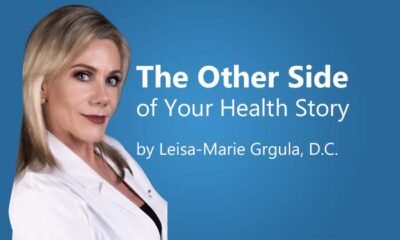abortion
GARRETT RILEY: Uncovering the Hidden Truth Behind Chemical Abortion Choices

By Garrett Riley |
For decades, the term “choice” has been central to the abortion debate. Pro-abortion advocates frame it as a fundamental issue of personal liberty — a private matter between a woman and her doctor. However, true choice hinges on access to accurate and comprehensive information. Recent findings regarding chemical abortion raise significant concerns that have gone unaddressed for too long.
A comprehensive study by the Ethics and Public Policy Center, which examined over 865,000 chemical abortions from 2017 to 2023, reveals that 1 in 9 women who take the abortion pill experience serious medical complications. This equates to nearly 11% suffering from severe issues such as hemorrhaging, sepsis, or infections—conditions that could result in long-term damage, emergency surgeries, or even death. Additionally, about 5% of those women require further medical interventions, indicating a concerning failure rate for the pill.
These statistics underscore the urgent need for action. Government agencies responsible for drug and healthcare regulation must enforce stricter oversight. Moreover, those who truly believe in the concept of choice must reconsider what it means in the context of informed decision-making.
Choice devoid of factual information is not real choice. The narrative surrounding the abortion pill has often been misleading, asserting that it is “safer than Tylenol.” However, the FDA’s official documentation states a serious adverse event rate of less than 0.5%, a figure that starkly contrasts with the actual data reflecting the dangers involved.
Sound decision-making cannot occur when vital information is withheld. In other medical contexts, data of this nature would prompt immediate recall or thorough safety reviews.
During the fast-tracking of the abortion pill in the 1990s, regulators promised stringent safety standards. Yet, these standards are now under threat, particularly in Arizona, where regulations like mandatory ultrasounds and physician oversight are being neglected in favor of more permissive laws in other states.
The outcome is troubling: a pill that was once prescribed under medical supervision is now often sent through the mail without any follow-up care, leaving vulnerable women, especially those facing coercive situations, at significant risk to their mental and physical health.
Abortion advocates refer to the procedure as “medication abortion,” implying a healing effect. In reality, it poses serious health risks to women and takes innocent lives.
Labeling abortion as medicine is misleading. Authentic medical practices cannot harm or kill. Anyone committed to women’s health must acknowledge that this categorization is not accurate.
The original mantra of “safe, legal, and rare” has shifted dramatically. Chemical abortions now account for 63% of all abortions in the U.S., with some states reporting figures as high as 80%. Each pill signifies an increased danger for women, not a reduction.
We’ve transitioned from “safe, legal, and rare” to “dangerous, deregulated, and widespread,” betraying the core principles of healthcare.
This conversation transcends partisan politics. It centers on the ability of women to make informed choices. It’s about whether agencies like the FDA and HHS will fulfill their obligations to protect public health or succumb to ideological pressures.
If you advocate for choice, it’s essential to also support the dissemination of complete and truthful information. Anything less amounts to misinformation.
Recognizing human rights entails acknowledging the inherent worth of every life and the dignity of all mothers. Concern for healthcare safety cannot overlook these alarming statistics. There is a pressing need for thorough evaluation of the abortion pill’s safety and an end to the misinformation that has obscured the truth for too long.
The Arizona Life Coalition, in alliance with over 100 pro-life organizations, has called on the FDA to heed this critical evidence and restore the safety protocols that once safeguarded women.
Action is necessary. It is vital to ensure that every woman considering a crisis pregnancy has access to accurate information and support—not the misleading narratives from the abortion industry.
Advocate for the FDA and other governmental bodies to integrate these findings into their safety evaluations. Share this knowledge with your loved ones and community leaders. Urge them to reinstate essential safety measures and advocate for a comprehensive review of a pill that poses significant risks to women’s health.
Medicine should heal, not harm. Any policy or practice that contradicts this principle is incompatible with a just society.
Garrett Riley is the executive director of the Arizona Life Coalition, an organization dedicated to promoting pro-life choices through charity, education, and collaborative efforts.


















